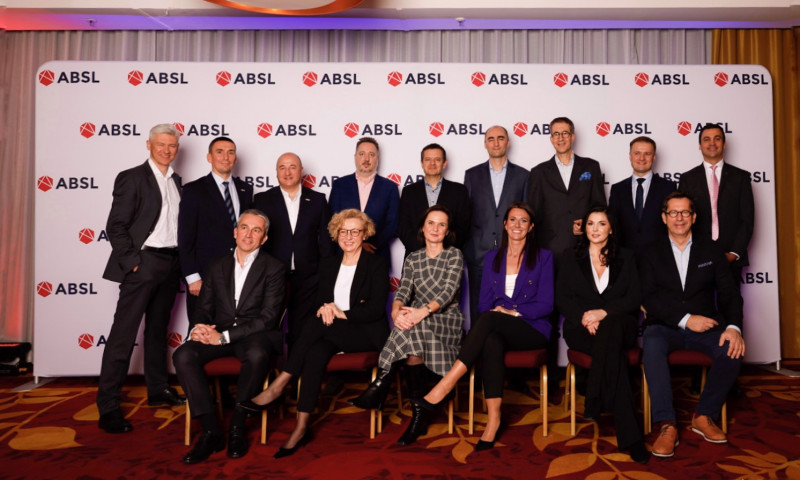Hard data or subjective evaluation? Cities' investment attractiveness report.
The latest ABSL report "Investment Potential of Polish Cities. Location benchmark of the business services sector" compares the attractiveness of Polish cities for different categories of shared services centers depending on their functions. Investors and city authorities receive an additional tool supporting investment processes. This is the first report to include both an objective ranking based on hard data indicating potential and actual attractiveness and a subjective ranking based on managers' assessments.
The shared services sector in Poland consists of more than 1,500 business process outsourcing (BPO), shared services (SSC/GBS), IT and research and development (R&D) centers. PAIH data shows that in 2020, 58 new investments were decided to locate in Poland, 44 of which were related to business services. Due to the international nature of services - 71 percent of entities belong to foreign companies, the majority of business service centers provide them to customers from all over the world, thus the industry is an important exporter. Factors in favor of locating centers in Poland are favorable location, convenient time zone allowing to serve other regions and the potential of the market, including in terms of labor market and the size of the educated workforce in relation to other economies of Central and Eastern Europe.
Different needs of investors
Investors responsible for the location of shared service centers make investment decisions taking into account a variety of factors depending on the nature of the business service center. The report collects data that shows that, as a rule, centers of knowledge-intensive business services, so-called KIBS or regional headquarters prefer urban locations, including large cities with a metropolitan character, especially capital cities. Smaller centers are preferred by domestic or foreign entities that optimize costs and implement the simplest business processes. Smaller centers or even areas outside urban centers are also chosen by entities serving clients from industrial sectors, for which customer proximity is important. The most complex situation takes place in the case of the R&D sector, where among the important stimulators of investment inflow are e.g. regional expenditures on investment processes, including the number of research and development staff or the number of research units, as well as the achieved results.
-Keeping in mind the New Industrial Policy being created, it is worth remembering that Poland is a beneficiary of the trend related to nearshoring, i.e. moving business processes closer to production or decision-making centers. Also, the tendency to shorten supply chains in the global economy may cause centers in Poland to take over orders flowing so far to Asia. Regardless of what industry we are talking about, it requires a background in the form of providing various types of business processes, so we should think about business services at the same time. The more so as the industry gives a chance to smaller cities to gain new investments, and thus new workplaces - says Wojciech Popławski, Vice President of ABSL.
Subjective assessments and hard data
The comparison of positions of cities in subjective and objective rankings brings significant differences and should be an important signal shaping the strategy of gaining investments for local authorities. Those differences may indicate a change in the way the investors perceive the centers and thus point to future trends.
The subjective ranking was prepared based on the ABSL 2020 survey, based on responses from managers of modern business service centers in Poland. Seven cities were evaluated: Warsaw, Wrocław, Kraków, Tricity, Łódź, Poznań, Katowice, and GZM. Tri-City won the subjective ranking, followed by Poznań and Wrocław. The following categories were assessed: accessibility by road, rail, and air, size of the talent pool, labor costs, availability of modern office space, it's quality and rent price, overall quality of life, quality of local universities, quality of cooperation between centers and local universities, and corporation with local investor support or development agencies.
The objective ranking is based on statistical analysis. The same categories were evaluated as in the subjective ranking. Additionally, several to a dozen or so features of a given category were taken into account in order to correctly assess the position of a given center in relation to its competitors. The objective ranking covered 15 urban centers. Apart from the cities assessed in the subjective ranking, the analysis also covered Lublin, Rzeszów, Bydgoszcz, Szczecin, Białystok, Kielce, Radom, and Tarnów. The objective ranking places in the first three positions: Warsaw, Krakow and Katowice, and GZM.
-A thorough analysis of both rankings provides valuable knowledge for local authorities by indicating the discrepancy between the perception and the actual state of affairs and thus be a guideline for information and promotion activities. The discrepancies may also be an indication of the existence of more deeply rooted problems that require counteracting or anticipatory actions. The comparative analysis of the rankings creates space for the implementation of changes increasing the investment potential of the location and increasing its competitive attractiveness - adds Wojciech Popławski.
Additional information:
Marta Piorun
PR Manager ABSL
marta.piorun@absl.pl
+48 534 454 464









